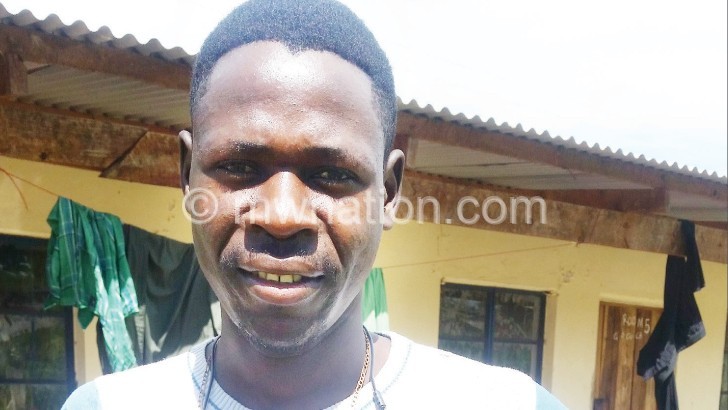‘Technical colleges not inclusive’
Our Staff Reporter JOHN CHIRWA finds out why community technical colleges remain disability-unfriendly.
Gift Maseko, 23, never allowed his paralysed right arm to extinguish his burning desire to become a tailor. Now, he is struggling to learn welding and fabrication at Ezondweni Community Technical College in Mzimba.
“I find it difficult to hold a tool. I spend hours to complete assignments that take my friends few minutes. Oftentimes, I seek their assistance. This robs me of vital experience for self-dependence,” he says.
The disability denied him a long-preferred chance to study his tailoring.
Maseko is one of 33 youthful Malawians with disabilities who have enrolled into technical colleges unconditionally this year.

Technical, Entrepreneurial and Vocational Education and Training (Tevet) Authority public relations officer Carol Margareta calls this an affirmative action.
“Almost all qualified applicants with disabilities were selected without subjecting them to group conditions and competition,” she says.
They constitute just 1.87 percent of 1 760 students selected for formal apprenticeship programmes this year.
But barriers to inclusive training in vocational and technical colleges abound.
According to Tevet Authority acting chief executive officer Wilson Makulumiza-Nkhoma, most of them apply for courses that are unsuitable for their conditions.
“Every applicant with a physical disability is assured of a place in technical colleges as long as they have the prerequisite qualifications, but we first consult Macoha [Malawi Council for the Handicapped] to redirect them to colleges and courses befitting their disabilities,” he says.
Nkhoma says Tevet Authority sometimes sends them to Macoha’s Kamuzu Vocational and Rehabilitation Centre in Lilongwe, which has all the necessary facilities and structures unlike many colleges.
“Very few colleges have disability-friendly facilities. As a regulatory authority, we are pressing the colleges to have friendly facilities in compliance with our regulations,” he says.
Malawi ratified the United Nations Conventions on the Rights of Persons with Disabilities which requires government to make disability-friendly services part of the design, implementation, monitoring and evaluation of all programmes, buildings and services. So does the Disability Act of 2012.
Federation of Disability Organisations in Malawi (Fedoma) head of programmes Simon Munde commends government for ensuring persons with disabilities access vocational and technical training, but calls for radical improvements to make all skills development centres accessible for all.
“This challenge is worse in boarding facilities and restrooms. This indirectly discourages persons with disabilities from continuing their training. They often endure different environmental and attitudinal barriers,” he says.
Munde urges government to make community technical colleges inclusive.
He urges government to always consult people with disabilities from the planning stages of public programmes.
Munde reckons they are further excluded by the insistence on a Malawi School Certificate of Education (MSCE) as the minimum qualification.
He explains: “The aim of the programme is to produce skilled young men and women. Some of those who will help Malawi become a predominantly producing and exporting nation rather than an importing and consuming economy are among persons with disabilities who had no chance to attain an MSCE due to various barriers they encountered on the way.
“What they have is an innovative mind and potential which can only be unlocked through beautiful programmes like community colleges.”
This year, a study by the Organisation for Economic Co-operation and Development (OECD) on technical education in the country revealed that high academic entry requirements, financial constraints and cultural issues prevent disadvantaged young Malawians from enrolling in Tevet institutions.
“Increasing the number of Tevet offerings with lower entry requirements in terms of education levels, recognising the importance of non-formal training and supporting traditional apprenticeship would help increase to, and equity of Tevet opportunities, especially for disadvantaged youths,” the researchers note.
But Ministry of Labour, Youth, Sports and Manpower Development spokesperson Christina Mkutumula says recruiting community technical colleges’ trainees at district level gives every person a chance to enrol and gain necessary skills.
“There are no exceptions if one is a person with disability or not. Everyone else is given a chance,” she says.
Mkutumula says MSCE remains a requirement because there is high demand for technical education against the limited spaces in colleges.





